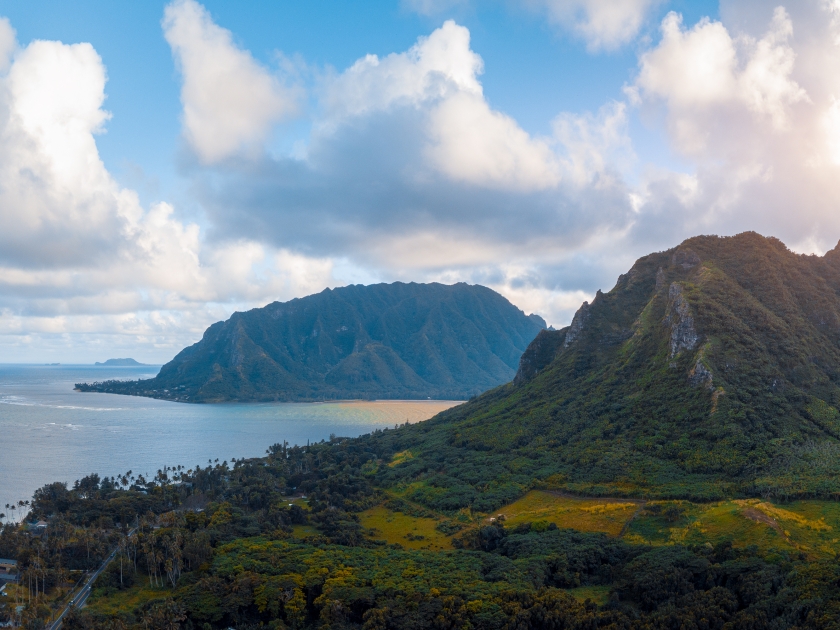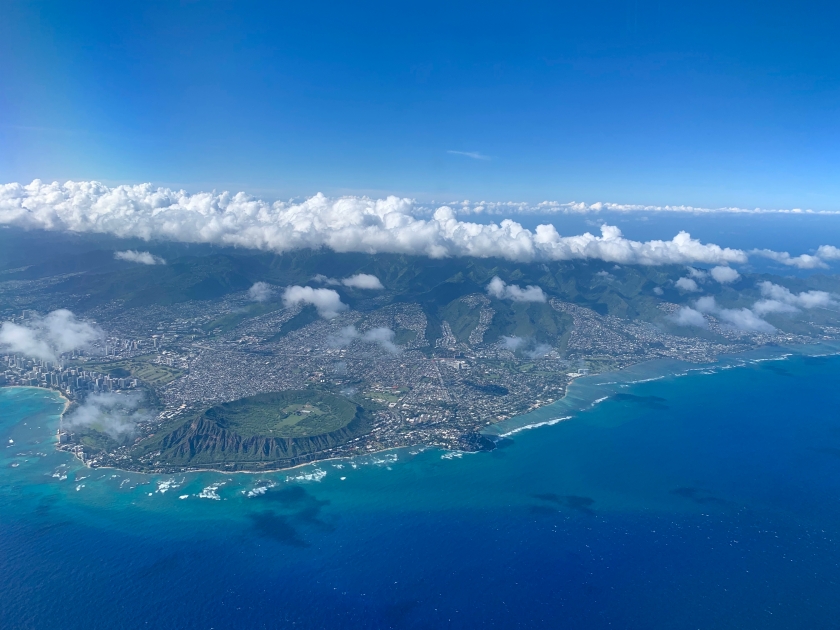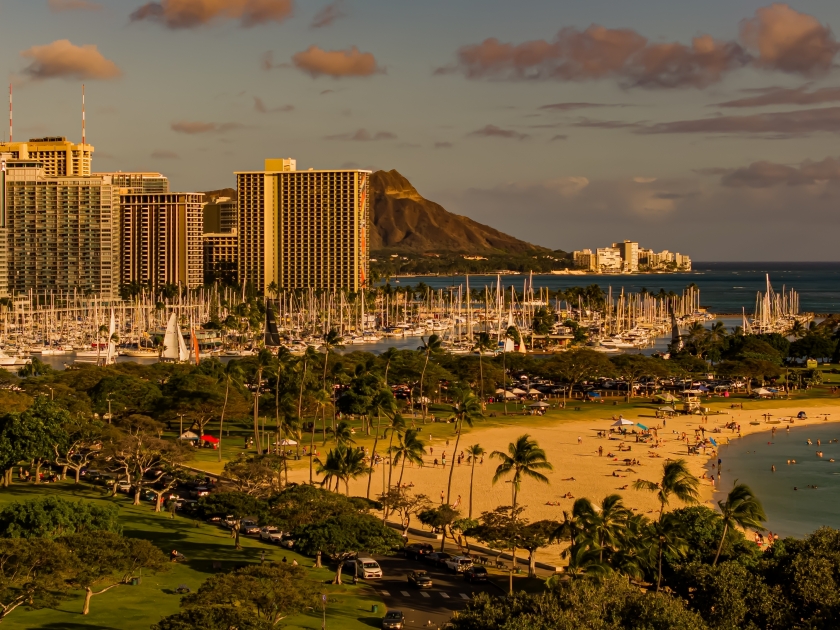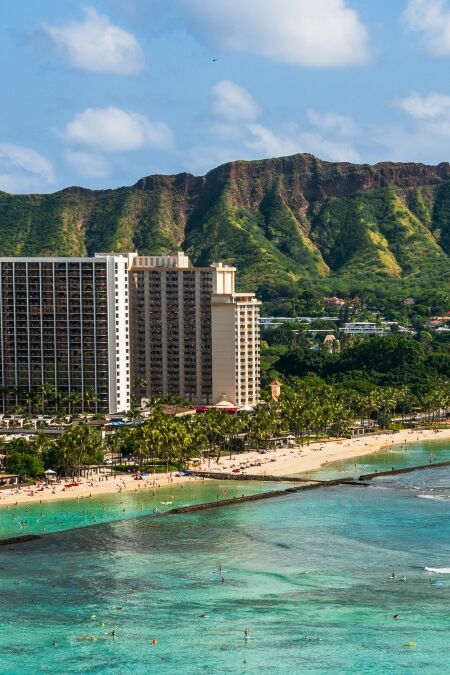Oahu, often celebrated as the heart of the Hawaiian archipelago, is a renowned cultural and tourist hub. This island, blending historic richness with vibrant modernity, attracts millions of visitors each year, drawn by its iconic beaches, historic landmarks, and the spirited aloha culture. In this article, we delve into the meaning behind the name “Oahu,” exploring its linguistic roots and the deep cultural and historical significance that underscores its identity as “The Gathering Place.” This exploration aims to enhance our appreciation of Oahu, offering insights into how its name reflects its past and present roles in Hawaiian society.
The Etymology of Oahu

The name “Oahu” carries with it echoes of ancient Hawaiian linguistic and cultural heritage, serving as a vital link to the island’s storied past. Hawaiian, a language rich with deep symbolic meaning, often encapsulates the essence of the land and its history in the names it bestows. “Oahu” is believed to derive from the native terms ‘o’, meaning ‘to gather’, and ‘ahu’, referring to an altar or gathering place, thus underscoring the island’s traditional role as a hub for social and political congregations. Insights from Hawaiian linguists and cultural historians suggest that this name not only identifies a geographical location but also narrates the island’s significance as a center for community and ceremony throughout its history.
Historical Context of Oahu
Long before it became a bustling metropolis, Oahu was a revered seat of power and a strategic political and religious center for the native Hawaiian chiefs. The island’s significance was magnified with the establishment of the Hawaiian Kingdom, where it served as the residence for the monarchy and the site of pivotal events like the unification of the Hawaiian Islands under King Kamehameha I. Over the centuries, Oahu has witnessed numerous transformative events, from the arrival of Captain James Cook to the tragic attack on Pearl Harbor, each shaping the island’s identity in profound ways.
Geographical Significance

Oahu’s geography, marked by its majestic mountain ranges, lush valleys, and stunning coastal lines, profoundly connects to its name, “The Gathering Place.” The island’s natural features, from the iconic Diamond Head crater to the verdant landscapes of the Koolau and Waianae ranges, create natural meeting spots that historically facilitated gatherings of local communities for social, political, and religious purposes. These geographic elements not only fostered the development of a richly interconnected society but also emphasized the island as a central hub in the Hawaiian archipelago. Landmarks like Pearl Harbor, Waikiki Beach, and the North Shore are not just popular tourist destinations but also places of deep cultural resonance that echo the historical and societal narratives of Oahu, showcasing its role as a crossroads of Hawaiian culture and history.
Cultural Importance of Oahu
Oahu stands as a vibrant epicenter of Hawaiian culture and tradition, significantly shaping and reflecting the modern Hawaiian identity. Its cultural vitality is displayed through numerous festivals and events that celebrate the rich heritage and traditions of the Hawaiian people. The annual King Kamehameha Day Parade, the Merrie Monarch Festival’s events in Honolulu, and the Lei Day Celebration are prime examples, each fostering a deep sense of pride and continuity among residents and visitors alike. These cultural festivities perpetuate the unique customs and arts of Hawaii, including hula, lei-making, and Hawaiian music.
Oahu in Modern Times

In modern times, Oahu has emerged as a powerhouse of tourism and economic activity within Hawaii, drawing millions of visitors annually to its shores. While tourism significantly bolsters the local economy, contributing to job creation and business growth, it also brings challenges such as over-tourism and environmental degradation. These issues pose threats to Oahu’s natural landscapes and cultural sites, sparking a vital dialogue on sustainable practices. Looking forward, there is a growing emphasis on balancing economic development with cultural preservation and environmental stewardship. Initiatives aimed at promoting responsible tourism and enhancing community engagement are key to ensuring that Oahu retains its cultural richness and natural beauty for future generations.
Journey Through Time and Tradition!
In exploring the rich tapestry of Oahu’s name, history, and culture, we uncover a deep-seated significance that transcends mere geography. Oahu, “The Gathering Place,” is a reflection of its historical role as a cultural and political epicenter in Hawaii. Understanding the meanings behind such place names is crucial for preserving the cultural heritage they embody. As stewards of this knowledge, we are called to visit Oahu with respect and mindfulness. Contribute to the enduring legacy of Oahu and ensure its stories continue to inspire generations to come.




